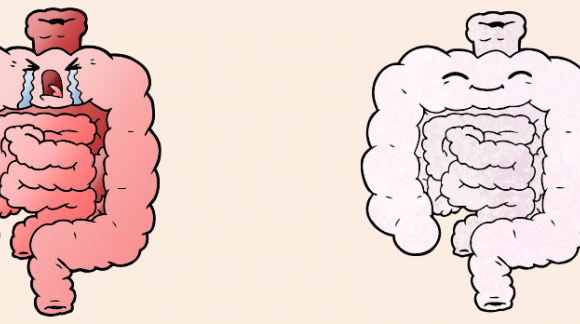Menopause: The webinar that finally answers the real questions – to help you regain balance, energy, and peace of mind
What if you could experience menopause differently—starting this week? That was the goal behind our recent webinar hosted by Olivier Bourquin, expert in holistic performance and nutrition, together with Dr. Claudine Matile Piguet, FMH-certified gynecologist based in Lausanne.
Menopause and perimenopause affect all women. Yet very few feel properly informed, supported, or even understood. Many go through this phase alone coping with unexplained fatigue, disrupted sleep, sudden weight gain, joint pain, mood swings, or a loss of motivation often without knowing what’s really happening in their body.
This webinar didn’t pretend to offer a miracle solution. Its aim was to create a safe space for open discussion, deliver clear, science-based knowledge, and provide practical tools to better navigate this crucial stage of life. Because the conversation was so valuable, we’ve decided to share a full written recap in this article so you can take your time and dive deeper into the key insights, alongside the video replay below.
Why this webinar—and why now?
The context is clear: more and more women are actively seeking holistic, integrative solutions. Not just medication. From the age of 42 or even earlier, many are already looking into ways to support their body and mind through this hormonal shift by focusing on nutrition, movement, sleep, and stress management, alongside standard medical care if needed.
A striking moment from the webinar: over 50% of participants said they had never received any real information from their doctor especially not about how to practically manage symptoms like hot flashes, insomnia, weight changes, digestion issues, or emotional reactivity.
The takeaway? We still talk too little and too vaguely about menopause. What’s missing is a bridge between science, everyday life, and real-life experience. That’s exactly what this webinar set out to build with a clear, down-to-earth, multidisciplinary approach that empowers women to take action.
Chapter 2: The Menopausal Transition – a True Hormonal Shift
The menopausal transition is not merely a biological milestone, but rather a profound hormonal transformation that affects the female body on multiple levels. As women age, ovarian activity gradually declines, leading to a significant decrease in the production of estrogen and progesterone — two key hormones that regulate the menstrual cycle and contribute to overall physical and emotional wellbeing.
This hormonal fluctuation can trigger a wide range of symptoms, both physical and psychological. The most common include hot flashes, night sweats, sleep disturbances, mood swings, low libido, vaginal dryness, weight gain, brain fog, and joint pain. These symptoms are not trivial — they can significantly impact quality of life and often prompt medical consultations.
It is important to emphasize that the menopausal transition is not a disease, but a natural stage of life. Still, the challenges it brings call for individualized and holistic care that includes medical support alongside attention to lifestyle, nutrition, mental health, and physical activity.
Chapter 3: Hormone Therapy – One Option Among Others
Hormone replacement therapy (HRT) remains one of the most well-known treatment options for symptoms linked to midlife hormonal shifts. It involves the administration of estrogens and, when needed, progestins to restore hormonal balance. This approach can be especially effective for hot flashes, insomnia, and vaginal dryness.
However, HRT is not suitable for every woman. There are medical contraindications such as a history of breast cancer, elevated thrombosis risk, or specific liver conditions. There are also potential side effects, including increased risks of breast cancer or cardiovascular issues with prolonged use.
For women who choose not to pursue HRT — or for whom it is not recommended — there are alternative approaches: from plant-based supplements like phytoestrogens to targeted dietary changes and non-hormonal medications. Regular physical activity, better sleep hygiene, and a healthy gut microbiome can all contribute to symptom relief.
The decision to initiate or decline HRT should always be personalized and well-informed. Dr. Claudine Matile Piguet, a specialist in gynecology and midlife care (gyneco-lausanne.ch), emphasizes the importance of tailoring treatment to each woman’s medical history, needs, and lifestyle preferences.
Chapter 4: The crucial role of nutrition during the menopausal transition
Hormonal fluctuations that occur during the menopausal transition can deeply affect the body’s metabolism, weight distribution, and overall energy balance. As Dr. Claudine Matile Piguet rightly pointed out during the webinar, this stage of life requires a shift in dietary habits. You can no longer eat like a teenager—and continuing to do so may worsen symptoms and accelerate unwanted changes.
Nutrition becomes a cornerstone for maintaining balance, especially when dealing with fatigue, sleep disturbances, weight gain, and loss of muscle mass. The focus must shift to quality over quantity: highly processed foods, refined sugars, and alcohol should be minimized, while whole, nutrient-dense foods should take center stage.
During this period, protein intake plays a particularly essential role. Not only does it help maintain muscle mass and satiety, but it also supports bone health—perhaps even more so than calcium, whose benefits are often overstated when taken alone through supplements. Dr. Bourquin emphasized that adequate and regular protein intake throughout the day can contribute significantly to stabilizing metabolism and improving strength and recovery.
Key micronutrients also come into play: magnesium (for relaxation and sleep), zinc (for immunity and hormonal balance), vitamin D (for bone health and immune function), and omega-3 fatty acids (for inflammation and cardiovascular health). These are all essential elements that deserve special attention during menopause.
But one area often overlooked is the importance of gut health. Probiotics and a fiber-rich diet can help regulate mood, digestion, and even hormonal pathways via the gut-brain axis. A healthy microbiome may reduce inflammation and support metabolic health—critical components during this stage of life.
Additionally, Dr. Bourquin highlighted the benefits of certain targeted supplements that can provide tangible support. Among them:
- Maca root: a natural adaptogen that may help reduce hot flashes and boost mood and libido.
- Evening primrose and borage oil: often used in skincare, but shown to help relieve breast tenderness, dryness, and skin elasticity changes during menopause.
- Magnesium and vitamin B6: for nervous system support and to reduce irritability and fatigue.
- Probiotics and prebiotic fibers: for gut balance and immune support.
Ultimately, nutrition is not a cure-all, but it remains a powerful lever for empowerment. When properly adapted, it becomes a daily strategy to help women regain control of their bodies, their moods, and their energy levels. It’s a long-term investment in resilience and vitality.
Chapter 5: Physical activity – an underestimated key to balance
During the transition around menopause, physical activity plays a crucial role – not only in weight regulation, but also in supporting bone density, improving mood, reducing stress, and balancing hormones. Yet for many women over 50, exercise remains a blind spot, often due to uncertainty, fatigue, or physical discomfort.
The encouraging news is that it's never too late to become active – and it doesn't have to be intense or complicated. Just one to two sessions per week can make a real difference. Brisk walking, long walks, swimming, or cycling are all excellent options. These gentle cardio activities enhance cardiovascular health, boost metabolism, and help stabilize weight.
Muscle strengthening is equally important, particularly to counteract the natural loss of muscle mass that accompanies hormonal changes. Two sessions per week of light resistance work – such as core exercises, Pilates, or bodyweight training – can improve posture, reduce fall risk, and positively impact quality of life.
Flexibility and mobility are often overlooked. Gentle stretching and joint mobility exercises, ideally performed in the morning, support movement and ease stiffness. Yoga can be particularly helpful, as it enhances body awareness while calming the nervous system.
What matters most is not perfection, but consistency. Each woman should find a physical practice that suits her lifestyle, health status, and energy levels. The goal in this phase is not to achieve performance, but to support the body and nourish a deeper connection with oneself.
Chapter 6: Supplements – Natural Support, Not Magic Solutions
During the menopausal transition, the female body undergoes major hormonal changes that affect multiple systems including the nervous system, metabolism, skin, bone density, and overall wellbeing. In this sensitive phase, certain dietary supplements can offer valuable support. It is essential to clarify that supplements are not a substitute for medical advice or a balanced diet, but they can be an effective complement when chosen wisely and of high quality.
Magnesium plays a central role during this time. It supports muscle relaxation, improves sleep quality, helps regulate stress, and contributes to maintaining bone health. Many women experience magnesium deficiency without even being aware of it.
Omega-3 fatty acids especially EPA and DHA are known for their anti-inflammatory properties. They support cardiovascular health and may have a positive impact on mood fluctuations. Supplementation is particularly recommended for women who consume little to no oily fish.
A lesser-known yet highly effective supplement is maca root. This adaptogenic plant from the Andes is traditionally used to support hormonal balance, energy levels, mood stability, and libido. Maca does not contain estrogen but can help the body regulate itself more naturally.
Probiotics also deserve more attention during menopause. A healthy gut microbiome plays a vital role in hormonal balance, immune response, and even emotional stability. For women experiencing digestive discomfort, sleep disturbances, or recurring infections, targeted probiotic use can be very helpful.
In addition, evening primrose oil and borage oil have shown positive effects. Both are rich in gamma-linolenic acid (GLA), an Omega-6 fatty acid that can help relieve symptoms like skin dryness, joint stiffness, and hormonal imbalances. These oils are particularly appreciated for their role in skin health and hormonal support.
In summary, supplements are not miracle cures, but they can make a noticeable difference when integrated into a holistic lifestyle. The right combination, tailored to the individual, ideally with professional guidance, can significantly enhance comfort and wellbeing.
Chapter 7: Frequently Asked Questions (FAQ)
1. Can I gain weight during hormonal changes even if I eat well?
Yes, and it's a common concern. As estrogen levels decline, metabolic rate slows down, and the way your body stores fat—particularly around the abdomen shifts. Even if your diet remains the same, weight gain can occur. That’s why it’s important to adjust your nutrition, prioritize lean protein, reduce added sugars, and stay physically active even in a gentle way.
2. Is weight gain inevitable?
No, it’s not inevitable. While hormonal changes can make it easier to gain weight, smart lifestyle adjustments can make a real difference. Eating nutrient-dense foods, maintaining regular physical activity (especially strength training), and supporting digestion and sleep can help stabilize your weight. Emotional and stress management is also crucial, as stress hormones like cortisol can contribute to fat retention.
3. What role does sleep play during this period?
A major one. Many women experience disrupted sleep due to night sweats, anxiety, or hormonal fluctuations. Lower progesterone levels, in particular, can make it harder to relax and fall asleep. Chronic sleep deprivation impacts appetite regulation, mood, and cognitive function. Establishing a calming bedtime routine, limiting screen time at night, and using natural supplements like magnesium may support better rest.
4. Should I completely change the way I eat?
Not completely, but intentionally. Your body becomes more sensitive to sugar and processed foods. Focus on meals rich in vegetables, healthy fats (like omega-3s), fiber, and high-quality protein. Avoid skipping meals, and reduce grazing throughout the day to support blood sugar balance. Fermented foods and adequate hydration also support hormonal balance and gut health, both of which are key during this time.
5. Is hormone replacement therapy (HRT) always necessary?
No. HRT is an option, not an obligation. For some women with severe symptoms, it can be life-changing. But it’s not suitable for everyone, especially those with contraindications like a history of certain cancers or cardiovascular risks. Many women manage their symptoms effectively through lifestyle, nutrition, plant-based therapies, or targeted supplementation. A well-informed, personalized decision ideally with a healthcare provider is essential.
6. Can supplements really help?
They can support your body when used appropriately. Magnesium helps with sleep, stress, and muscle relaxation. Omega-3s reduce inflammation and support hormonal balance. Vitamin D is key for bone health and immunity. Maca root has adaptogenic properties that may help ease hormonal fluctuations. Evening primrose and borage oil can support skin and hormonal regulation. Probiotics are also essential for gut health, which is closely tied to hormone metabolism.
7. How can I stay motivated when my body doesn’t feel like it used to?
This is a deeply personal experience, and it’s completely valid. Many women feel disconnected from their body, frustrated by unexpected changes. Setting realistic goals, focusing on progress not perfection and surrounding yourself with support can make a difference. This stage of life can be an opportunity to reconnect with yourself, redefine your priorities, and create new routines that truly serve your well-being. Self-compassion is key.
Chapter 8: Summary – What You Can Start Doing This Week
Understanding hormonal transition is the first important step. But real change comes through practical actions. This stage of life can become an opportunity for renewal rather than a challenge. Here are some simple and effective strategies you can begin implementing right now.
1. Eat a balanced diet – without harsh restrictions
Focus on a diet rich in protein, high in fiber, and including healthy fats such as olive oil, flaxseed, camelina, or fatty fish. Limit processed foods, refined sugars, and white flour. Each meal becomes an opportunity to support hormonal balance, digestion, and long-term vitality.
2. Move regularly – gently and consistently
Aim for one to two sessions of physical activity per week. This can include brisk walking, light cycling, swimming, or a Pilates class. Add some light strength training, such as core exercises, to help maintain muscle tone. Stretching and joint mobility routines are helpful, especially in the morning. Yoga is excellent for increasing body awareness and calming the nervous system.
3. Prioritize sleep quality
A consistent evening routine, limiting screen time before bed, and creating a peaceful sleep environment are key. If sleep remains difficult, magnesium, herbal remedies, or breathing exercises like heart coherence can be very helpful.
4. Use supplements thoughtfully and individually
Omega-3 fatty acids, magnesium, vitamin D, maca root, evening primrose oil, borage oil, and probiotics can all help support the body during this transition. Consulting with a health professional can help determine the best fit for your unique needs.
5. Don’t go through this alone
Talk to a trusted healthcare provider, join a support group, or open up to friends and family. Being heard, understood, and supported is often the key to navigating this phase with more confidence and clarity.
Remember: This hormonal transition is not a stop, but a transformation and even small steps can lead to big shifts in your well-being.








